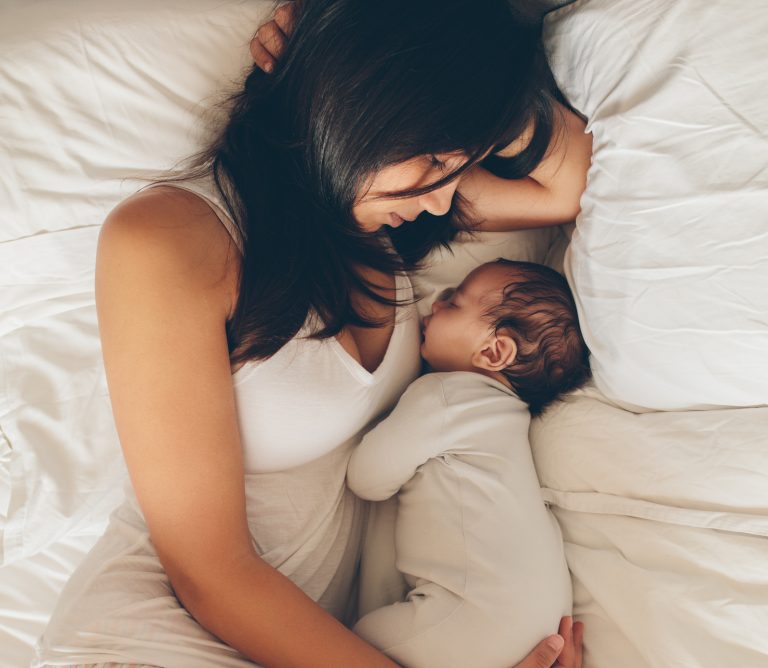I am sitting in an airport lounge. Without my kids. It’s cold and flu season. One of the twins might be suffering from appendicitis (or a bad pizza). Schools are on strike. And as I write this, my daughter will be waking up and coming to my bed to discover I’m not there, for the first time in her life. I can’t imagine the scene that will follow.
I am a bad mom.
Leaving her behind isn’t something I worried about when I broke the rules and let her sleep in my bed as a baby, something she’s never quite grown out of. She was my last baby, and I had three other kids to look after—I needed my sleep, even if it meant sharing my bed.
With twins, attachment parenting was never even an option; they were lucky for whatever piece of me they managed to grab on to. And although my first son had all of me, particularly at the beginning, neither of us really seemed that interested. He’s the one that called off breastfeeding at 10 months, not wanting to cuddle so much anymore. He didn’t shed a tear on his first day at daycare; hell, he probably didn’t even look back at me! I remember my mom telling me it was for the best, that it would be harder had he cried. I’m not sure I believed her, but now that I’m waiting for the call from my sister to turn the plane around and come back home, I’m beginning to think she’s right.
Thanks to my business and my ability to work from home, my daughter and I have been inseparable since the moment she was born. My dad jokes about her being a thing that’s grown onto my body, like an extra limb.
And while my eldest throws out digs like, “You’re leaving us,” just because he’s sore that he’s not getting his beach holiday this year, it’s my daughter that I’m really worried about. She has a fit if I go grocery shopping without her; how will she handle 12 days in my absence?
Attachment parenting is said to make children feel safe and give them an increased sense of security and confidence. That’s all well and good, but what about when the person you’re attached to is gone?
The Atlantic warns that attachment parenting can takes its toll in parents, and kids, putting kids’ needs before parents and maybe even resulting in creating spoiled brats.
But as Today’s Parent explores, attachment parenting is about more than catering to your kids’ whims; it’s about contact and connection and proximity—and not just in the physical sense.
“In infants and young children, this often means wanting actual physical contact, but as children grow, they can seek closeness with a parent in ways that do not necessarily involve being held or touched,” Vancouver psychologist Gordon Neufeld, co-author of Hold On to Your Kids, says.
I may not have been able to be as close to my twins as other mothers were with their babies, but I try to make up for it at bedtime. I give each one an extra long snuggle and let them share their day, ask questions and sing their favourite lullabies. I know we have this connection, even if they spent most of the time in a stroller or crib, rather than my arms.
For better or worse, the boys are resilient; they’ve learned to count on themselves. Which makes me think that maybe it’s a good thing for my daughter that I’m going away, after all.
…

